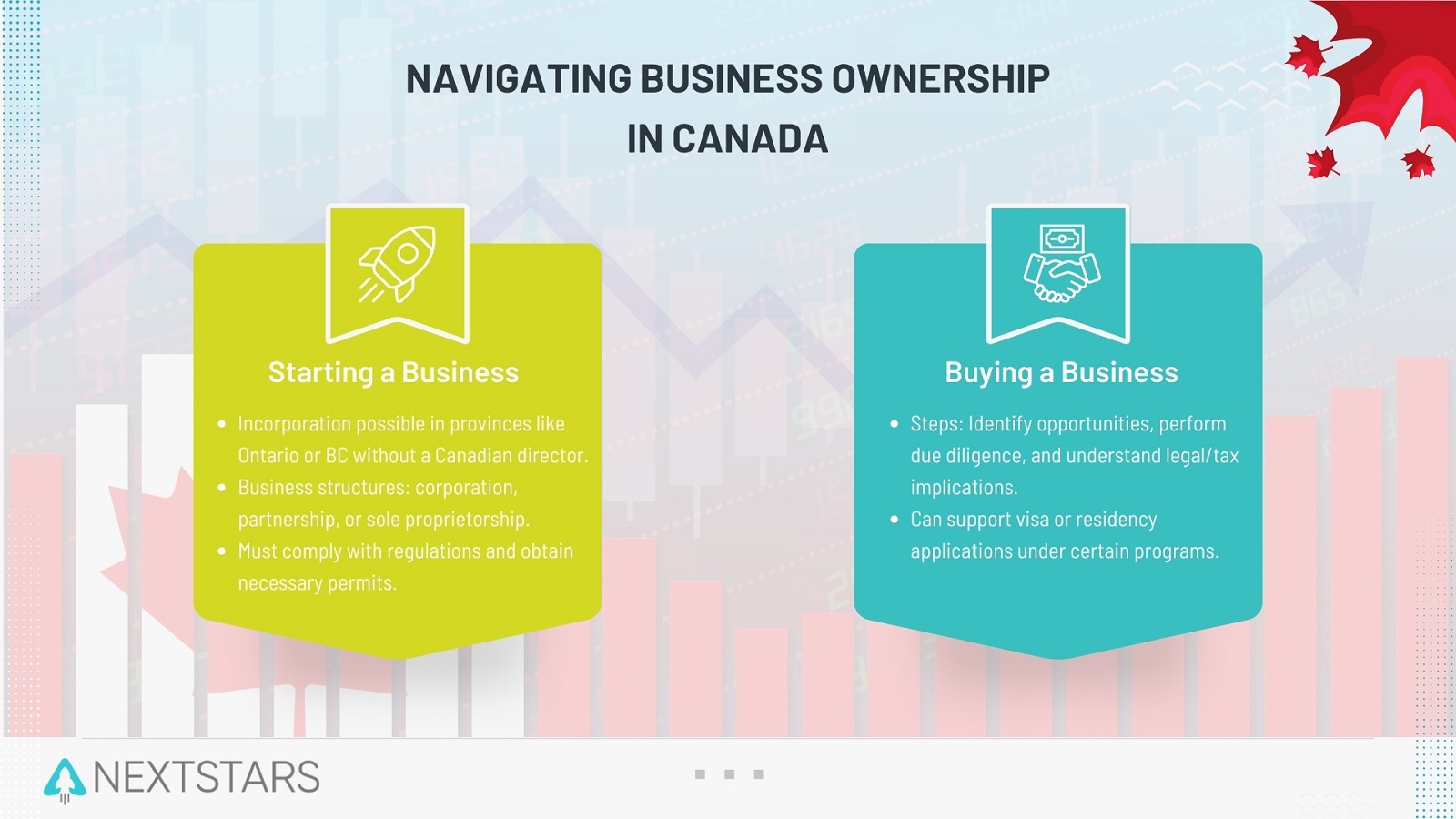Canada’s welcoming business environment and robust economy make it an attractive destination for foreign entrepreneurs. Here’s an overview of the key considerations for non-residents interested in starting or purchasing a business in Canada:
1. Can I Start a Business in Canada Without Being a Resident?
Yes, non-residents can start a business in Canada; however, specific requirements vary by province:
- Provincial Regulations: Some provinces, like Ontario and British Columbia, permit 100% foreign ownership, allowing non-residents to incorporate without a Canadian director. In contrast, other provinces may require at least one director to be a Canadian citizen or permanent resident. Ontario Business Central
- Business Structure: Non-residents can establish various business structures, including corporations, partnerships, or sole proprietorships. Incorporation is common due to limited liability and potential tax advantages.
- Legal Requirements: Non-resident business owners must comply with federal and provincial regulations, which may include appointing a local agent for service and obtaining necessary licenses and permits.
2. How Can I Buy a Business in Canada as a Foreigner?
Foreigners can purchase existing businesses in Canada, and this process involves several key steps:
- Identify a Suitable Business: Conduct thorough research to find a business that aligns with your skills, experience, and investment goals. Engaging with business brokers or consulting services can facilitate this process. Fly From Canada
- Due Diligence: Perform comprehensive due diligence to assess the financial health, legal standing, and market position of the target business. This includes reviewing financial statements, contracts, and compliance with regulations.
- Legal and Financial Considerations: Understand the legal implications of foreign ownership, including tax obligations, potential need for government approvals, and compliance with the Investment Canada Act if applicable. Consulting with legal and financial advisors experienced in Canadian business acquisitions is advisable. Falcon Lawyers
- Immigration Implications: While purchasing a business does not automatically grant residency, it can support immigration applications under certain entrepreneur or investor visa programs. It’s essential to explore immigration pathways if relocation is a goal. Elaar Immigration
3. What Legal and Financial Steps Do I Need to Follow to Set Up a Business?
Setting up a business in Canada as a non-resident involves several critical steps:
- Choose a Business Structure: Decide between incorporation, partnership, or sole proprietorship based on factors like liability, taxation, and management preferences.
- Register the Business: Register your business federally or provincially, depending on the scope of operations. This process includes selecting a unique business name and filing the necessary incorporation documents.
- Obtain Necessary Licenses and Permits: Depending on the nature of your business, you may need specific licenses or permits to operate legally. This varies by industry and location.
- Open a Business Bank Account: Establish a Canadian business bank account to manage finances. Banks may have specific requirements for non-residents, so it’s important to inquire about the necessary documentation.
- Understand Tax Obligations: Familiarize yourself with federal and provincial tax requirements, including corporate taxes, Goods and Services Tax (GST), and payroll taxes if you have employees. Non-resident businesses may have specific tax considerations. Government of Canada
- Hire Professional Advisors: Engage with legal, financial, and tax professionals who specialize in Canadian business law to ensure compliance and optimize your business setup.
By following these steps and seeking appropriate professional guidance, non-residents can successfully establish or acquire a business in Canada, leveraging the country’s favorable economic environment.





